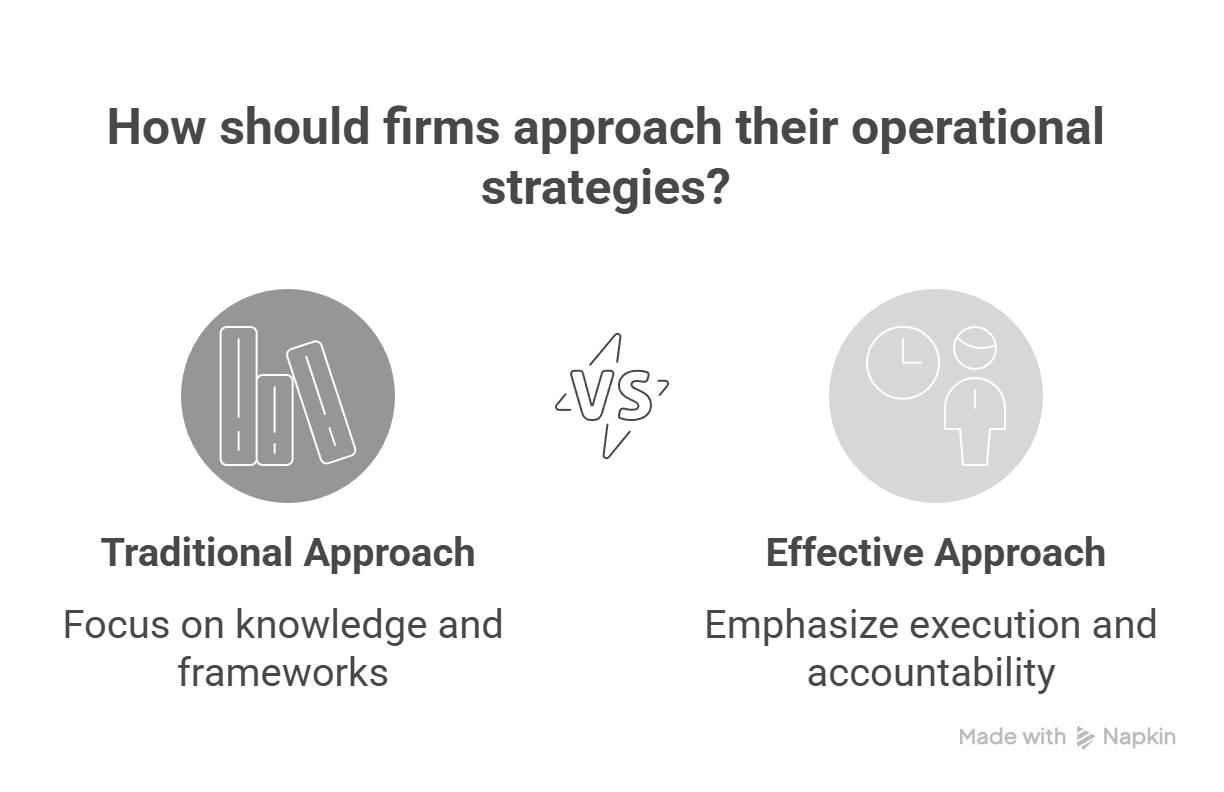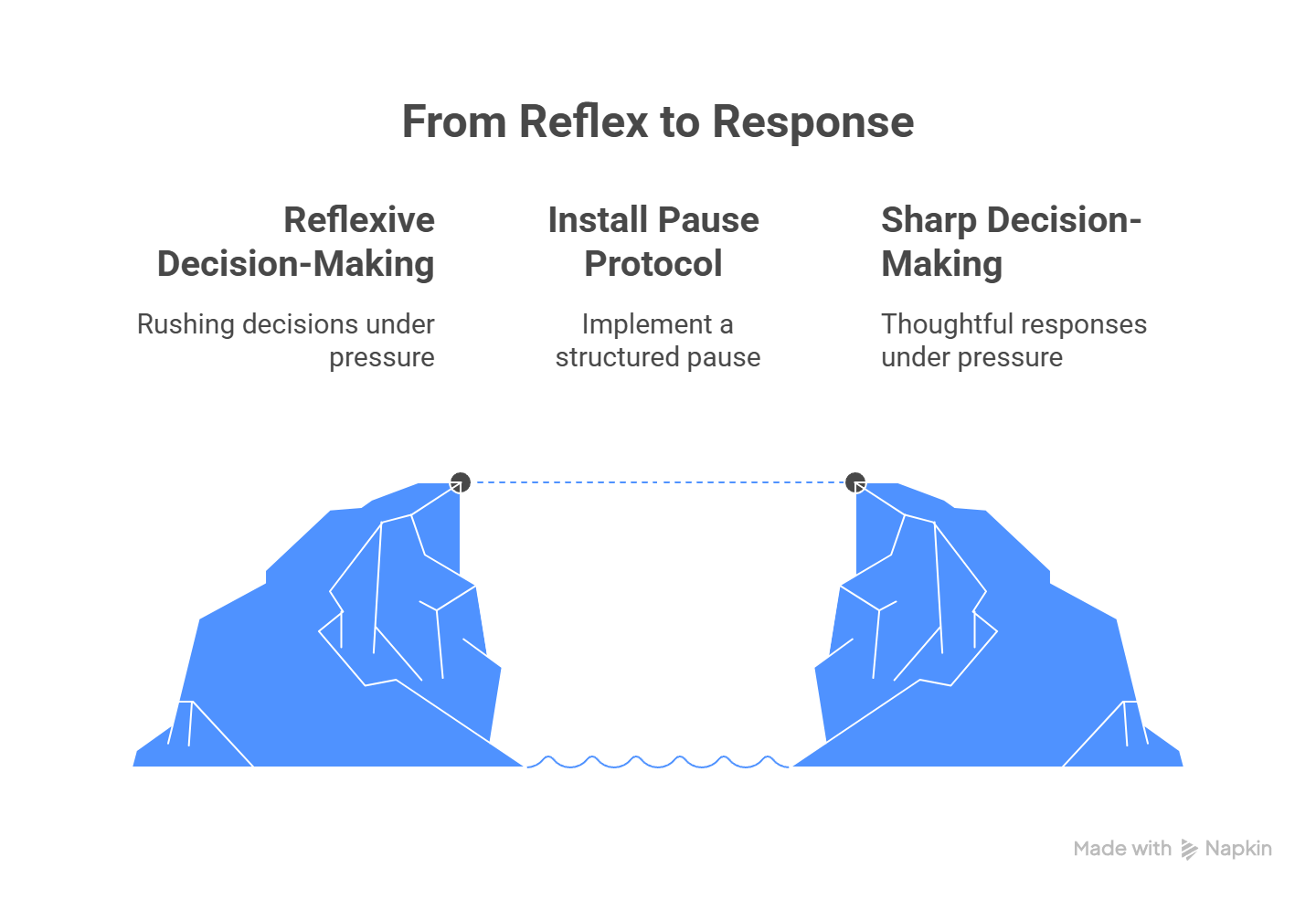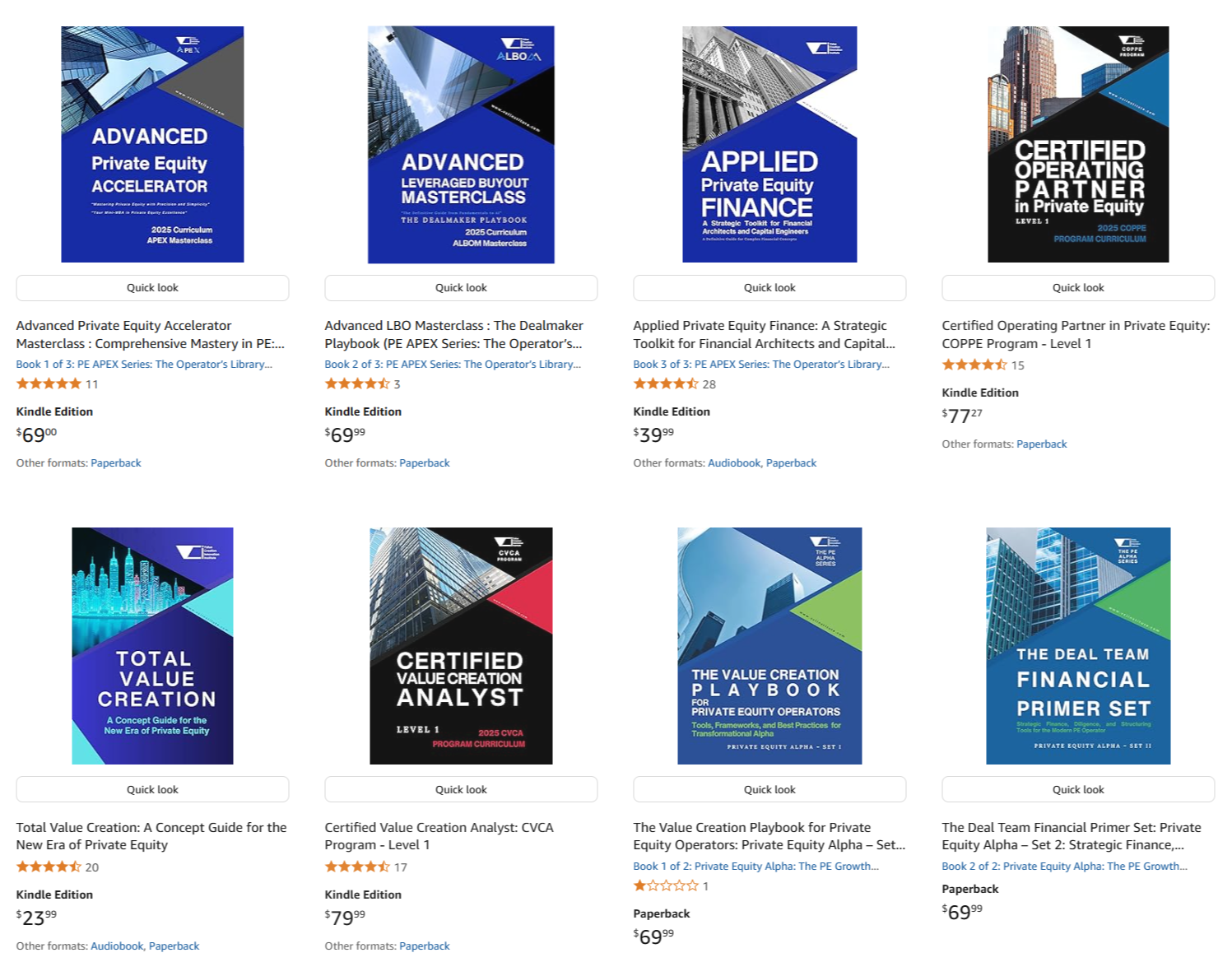Beyond the Buzzwords: 5 Brutally Honest Lessons on Value Creation
Sep 16, 2025
Why execution discipline beats secret formulas in today’s private equity
Private equity is often portrayed as a black box powered by complex engineering and guarded playbooks. The popular belief is that elite firms hold a proprietary formula for value creation that others cannot access. The truth is less glamorous and far more useful. Information is broadly available, toolsets are converging, and the edge has shifted from what you know to what you consistently do. Real value is created by leaders who cut through noise, simplify the work, and turn intent into cash. The five lessons below reflect that reality.

The playbook is common; discipline is scarce
Most firms have similar frameworks. Market intelligence is widely distributed. Consultants teach the same methods to competitors across a sector. That is not a defect; it is the baseline. The differentiator is the boring part that rarely makes a conference stage: planning tightly, deciding quickly, and following through relentlessly. If you want an advantage that travels from deck to P and L, treat your playbook as a living operating system rather than a glossy binder. The unfair advantage is not knowledge. It is cadence, accountability, and the courage to stop doing work that does not move a number you care about.
VCII field rule: do not ask whether a team knows the play; ask whether the team ran the play three times this week, at the same standard, with the same single owner, and with a measurable lift.
Big strategy decks kill execution
Complexity can feel impressive in the boardroom and toxic on the floor. When a plan sprawls across sixty pages and a dozen tabs, people stop reading and start guessing. That is how cycles slip and excuses grow. Simplicity is not a style choice; it is an execution requirement.
The One Page, One Owner, One Number standard
-
One page that states the objective, the next three steps, and the deadline.
-
One named owner who has authority to decide and is accountable for delivery.
-
One number that defines success and will be reviewed weekly.
If an initiative cannot fit on that single page, it is not ready for the line. If no one person truly owns it, it will drift. If success is not captured in one number, the team will debate narrative instead of performance.
Speed without self-control is expensive
PE-backed environments reward urgency. That incentive can trip leaders into reflex rather than response. Under pressure, it is easy to let adrenaline take the wheel, rush a decision, and create rework that costs weeks. The best performers are not slower; they are sharper about when to hit pause.
Install a pause protocol
-
Name your triggers: words, behaviors, or data points that push you into fight or flight.
-
Pre-commit a 90 second reset: breathe, reframe the problem, and write the single decision you are actually making.
-
Decide the minimum viable next step: a small test, a time-boxed analysis, or a one-customer pilot.
Self-control is not softness. It is asset protection. A deliberate 90 seconds can save a quarter.
If it does not change behavior, it is theater
Boards sometimes drift into observation mode. Operating partners can be given responsibility without authority. Transformation becomes a slogan rather than a system. None of this is malicious; it is simply what happens when optics outrun operations. Theater looks like progress but does not change how people sell, schedule, price, build, or collect.
Turn governance into mission control
-
Weekly Flash: 30 minutes, no slides, just numbers and blockers.
-
Monthly Bridge: what moved, why it moved, what we are doing next, and who owns it.
-
Quarterly Reset: reprioritize and re-fund with the courage to stop low-yield work.
Every metric must have a human owner and a next action. The moment a number loses both, it becomes wallpaper.

Transparency is a competitive weapon
Secrecy is overrated. Publishing your process does not give away an edge; it signals that you have one. The firms that document how they create value and share real outcomes earn trust faster with founders, attract better operators, and make it easier for LPs to underwrite their discipline. Transparency is not about posting trade secrets. It is about making your operating promises auditable and then living up to them.
Make it public where it pays
-
Deals: show the before-and-after of the few levers you always pull, and the evidence that those levers work.
-
LPs: report with clarity on fees, pacing, and cash conversion so partners know how you drive DPI, not just TVPI.
-
Talent: reveal how decisions are made and how wins are measured, so top operators can see themselves succeeding in your system.
When the process is visible, excuses get scarce and performance compounds.
Conclusion: do the work
There is no secret handshake. There is earned conviction, clean focus, a bias for measured action, and a willingness to show your homework. The playbook is not the moat. The moat is the habit of turning plans into behavior and behavior into cash. Strip away the jargon and the decks and ask one question: what is the one simple, executable truth your business needs to act on this week, and who owns the next irreversible step.
Copyright © 2025 VCI Institute. All rights reserved.
References and source notes
Bain’s Global Private Equity Report 2024 highlights the shift from multiple expansion tailwinds to operating-value headwinds and stresses crisp execution in the current rate environment. Bain & Company+1
Bain’s 2025 outlook notes aging dry powder, liquidity pressures, and the need for differentiated strategies as markets stabilize, with investment and exit activity showing signs of recovery through 2024. Bain+1
McKinsey’s 2024 and 2025 private markets reviews underscore tougher fundraising and the imperative to drive operational value creation to offset multiple compression. McKinsey & Company+3McKinsey & Company+3McKinsey & Company+3
On execution and simplicity, HBR emphasizes that execution must be as thoughtful and adaptive as strategy, reinforcing the case for clarity over complexity. Harvard Business Review+1
On transparency and LP trust, ILPA Principles and industry commentary advocate clearer, more consistent reporting to strengthen alignment and credibility. ILPA+1
We have many great affordable courses waiting for you!
Stay connected with news and updates!
Join our mailing list to receive the latest news and updates from our team.
Don't worry, your information will not be shared.
We hate SPAM. We will never sell your information, for any reason.


